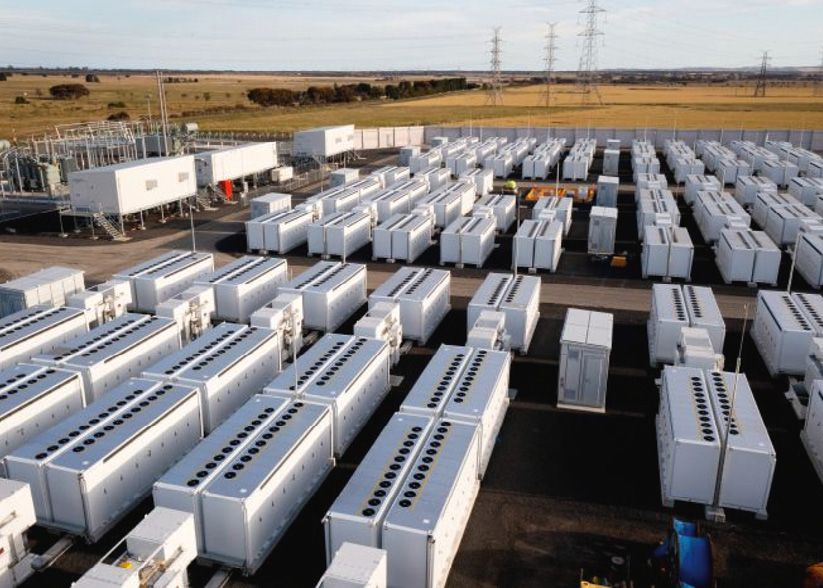While the BESS supply chain has stabilized in terms of prices and supply of raw materials, lead times for certain components, such as transformers, have greatly extended.
“While global battery supply eased in 2023, after experiencing tightness in supply the previous year, the limited supply of transformers has become the new bottleneck of the energy storage supply chain,” says Kevin Shang, a senior research analyst in Wood Mackenzie.
Transformers are critically important as they enable the BESS connection at all grid levels by stepping up the output voltage to the same level as the grid voltage. Presently, the global transformer market is observing shortages and subsequent increases in prices, mainly due to increased raw material demand, pandemic-related shortages and backlogs, labor constraints, shipping issues, and geopolitical tensions. In some parts of the world, the shortages are acute.
“We have seen a significantly tight supply of transformers in the US and European markets. The prices of transformers used to trend with metal prices. Nowadays, the prices of transformers are more driven up by demand and the industry will have to pay whatever is needed,” Shang tells pv magazine.
According to Shang, there is a minimum lead time of more than one year for transformers of all sizes. “This has a direct impact on system integrators as transformers are integral for grid connection,” Shang says.
In 2022, the global BESS integrator market grew increasingly competitive. According to WoodMac, the the top five global system integrators accounted for 62% of overall BESS shipments (MWh).
Leading vendor, Sungrow dominated the market with 16% of global market share rankings by shipment, followed by Fluence (14%) and Tesla (14%), Huawei (9%), and BYD (9%).
“A common feature behind the leading BESS integrators is that their global presence allows them to access a larger customer base and unlock additional revenue streams. In addition, many BESS integrators have been seeking to enhance the vertical integration of their supply chain,” Shang says.
BESS integrators are usually responsible for procuring individual components, assembling the system, providing a wrap on warranties, integrating the controls and energy management system, and often providing project design and engineering expertise. The are also providing operation, monitoring, and maintenance services.
As the energy storage market continues to expand so does the number of companies active in this space. In China, the BESS integrator market is becoming increasingly competitive, squeezed by both upstream and downstream supply chain participants.
Popular content
“Possessing manufacturing capacity on key components, like cell, PCS, BMS and EMS, tends to be a necessity rather than a plus as bid requirements for energy storage projects become more detailed and stringent,” Shang says.
In such a surrounding, price has become the most significant distinction and key winning bid factor in the region.
“The price war among system integrators has started in China. We’ve observed an increasing number of players willing to sacrifice profits in exchange for market share, dragging down the profitability of the whole industry,” Shang says.
Consolidation seems imminent in the short and middle term. “We forecast that aggressive bid strategies with little margin will not be sustained. Intensifying market competition will make it difficult for companies with low profitability and no clear competitiveness to survive over the coming years,” Shang says.
According to S&P Global Commodity Insights, mainland China battery energy storage market grew by over 400% in 2022 and is exclusively supplied by local players. This has led to Chinese system integrators moving up on the global rankings. “Competition in international markets will intensify as these Chinese suppliers look to expand globally offering highly competitively priced products,” says S&P Global.
According to the number of installed projects completed as of July this year, S&P Global ranks Sungrow, Fluence and Tesla as the top three BESS integrators globally, followed by Wartsila and Hyperstrong. Together, these five company have installed over a quarter of global BESS projects, S&P said.
The analysts have also highlighted oversupply as a key reason behind the intense competition in the BESS integrator market amid a large number of battery manufacturing announcements targeted exclusively at the energy storage industry.
“By offering easy-to-install direct current (DC) containers and looking to offer standardized alternating current (AC) solutions in the future, cell manufacturers will further add to the competition in the space,” S&P Global writes in its recently released article.
This content is protected by copyright and may not be reused. If you want to cooperate with us and would like to reuse some of our content, please contact: editors@pv-magazine.com.



5 comments
By submitting this form you agree to pv magazine using your data for the purposes of publishing your comment.
Your personal data will only be disclosed or otherwise transmitted to third parties for the purposes of spam filtering or if this is necessary for technical maintenance of the website. Any other transfer to third parties will not take place unless this is justified on the basis of applicable data protection regulations or if pv magazine is legally obliged to do so.
You may revoke this consent at any time with effect for the future, in which case your personal data will be deleted immediately. Otherwise, your data will be deleted if pv magazine has processed your request or the purpose of data storage is fulfilled.
Further information on data privacy can be found in our Data Protection Policy.